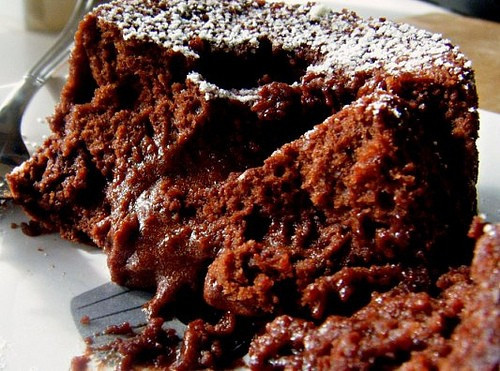Can Chocolate Cake for Breakfast Diet Help You Lose Weight?

A new study by Tel Aviv University found that eating a small dessert as part of a balanced breakfast actually helped dieters lose more weight and keep it off with more success.
The study was conducted by Prof. Daniela Jakubowicz, Dr. Julio Wainstein and Dr. Mona Boaz of Tel Aviv University's Faculty of Medicine and the Diabetes Unit at Wolfson Medical Center and by Prof. Oren Froy of Hebrew University Jerusalem.
According to them, slipping in a slice of chocolate cake with a breakfast that boasts protein and carbohydrates is one of the keys to staying trim, both in terms of short-term weight loss and to avoid gaining the pounds back.
But who, exactly, was in the study, and how many were tested? How did people eating dessert for breakfast compare to those who avoided sweets? Is this study just too good to be true?
Who participated in the study?
In the Tel Aviv study, researchers split 193 clinically obese, non-diabetic adults into two groups. Men were set on a diet of 1,600 calories a day, while women were restricted to 1,400.
Once the groups were divided, half the subjects were given 300-calorie, low-carb breakfasts in the morning, while the other half ate 600 calorie breakfasts that included a small piece of chocolate cake.
What were the results?
Halfway through the 32-week study, both groups had lost an average of 33 pounds per person.
In the second half of the study, however, those eating a light, dessert-free breakfast gained back an average of 22 pounds per person, while those eating chocolate cake in the morning lost another 15 pounds apiece.
By the end of the 32-week study, the dessert for breakfast group had lost an average of 40 pounds more per person than those who had eaten a light, carb-free meal each morning.
Why dessert in the morning?
According to Prof. Jaubowicz, the key to healthy indulgence is to do so in the morning. That's when our body's metabolism is at its most active, and it gives us the whole day to work those extra calories off.
Breakfast is also the meal that can best regulate ghrelin, the hormone that increases hunger. Although ghrelin levels spike before every meal, it is the most suppressed at breakfast, meaning you'll likely eat less and feel full faster.
Why not just cut dessert altogether?
If one reason for having dessert in the morning is to lessen its impact, why not just cut out the calories altogether?
That's a lot easier said than done, however, and according to Jakubowicz, trying to cut desserts entirely can end up creating a psychological addition to the same foods over time.
Adding desserts like cake or a cookie in the morning, on the other hand, can help those with a sweet tooth keep their diet under control.
The group that consumed a bigger breakfast, including dessert, experienced few if any cravings for these foods later in the day, Jakubowicz says.
Sugar in the morning, meanwhile, if balanced with some complex carbs and some proteins, can give your energy a boost, kick-start your metabolism and aid in early-morning brain functioning.
Too good to be true?
For those looking to scarf down chocolate cake every morning, take note: this is only one study, and even this one can provide different answers as to why participants lost weight.
The group that lost more weight, and kept it off, was eating chocolate cake every morning. This same group, however, was also having more calories in the morning in general, a fact which on its own could have helped participants stick to their diets throughout the day.
This second group was also having more carbohydrates in the morning, regardless of whether it came from cake or from complex carbs in their breakfasts. As a result, this group would likely have had more energy and felt less need to consume more calories.
Jakubowicz's point about sugar cravings, however, is likely on the money. Having a slice of chocolate cake or a similar indulgence each morning would likely make dieters less likely to feel they were depriving themselves throughout the day.
A recent study in the American Journal of Clinical Nutrition concluded that weight loss is far more dependent on how many calories dieters are consuming, not what makes up their diets.
© Copyright IBTimes 2024. All rights reserved.











